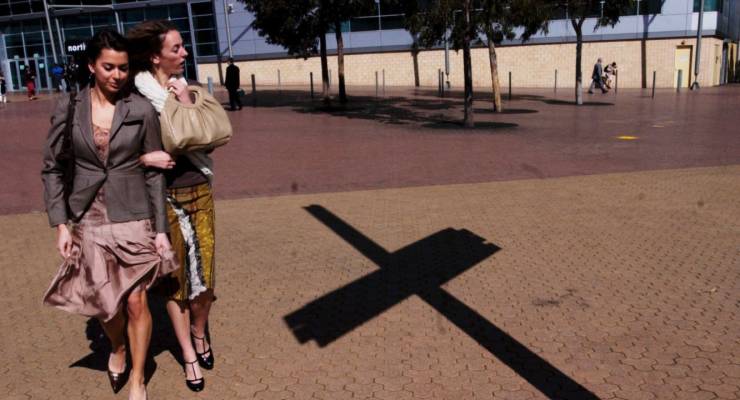
The Jehovah’s Witnesses have come under scrutiny in recent weeks after it emerged they ordered elders in Australia to destroy confidential documents, including notes taken by elders investigating child abuse allegations. The move has enraged abuse survivors and raised questions about how the Jehovah’s Witnesses handle child abuse claims in Australia.
More than 68,000 Australians count themselves as active members of the Christian sect, which was founded in America in the late 19th century as a group disputing many core tenants of mainstream Christian dogma. But apart from their door knocking, not much is widely known about their beliefs. INQ takes a look:
Way of life
Being a Jehovah’s Witness is considered a way of life and members are supposed to be dedicated, obedient and submissive to the faith at all times. They are expected to live their life in accordance with the principles set out by the governing body, a council of elders who consider themselves to be anointed by Jehovah (God).
Literature
Jehovah’s Witnesses refer to themselves as “publishers” due to the organisation’s history of publishing and disseminating “millenarian” literature warning people that the world is about to end. Each month the body publishes an edition of The Watchtower magazine and members are expected to disseminate it and study the articles over the course of that month.
Interpretation
Jehovah’s Witnesses interpret the Bible literally and take living in accordance with the Bible extremely seriously. The governing body use the Bible to set policy and religious practice based on “God’s word”. During the royal commission into child abuse, Geoffrey Jackson, one of seven men on the church’s New York-based Governing Body, described the Bible as the organisation’s “constitution”.
End of the world
One of Jehovah’s Witnesses’ central beliefs is that the world is going to end. The belief impacts every decision a member makes in their lives. Many do not go to university or have children because they believe there is no point. After Armageddon, they believe they will inhabit paradise on Earth, where there is no war or hunger or sorrow.
Male ‘headship’
The Jehovah’s Witnesses believe in a strictly patriarchal society, where men hold all positions of authority and women and children submit to them. This so-called “male headship” principle was explained at the commission by Terrence O’Brien, a member of the Jehovah’s Witness branch committee and director of the Watchtower Bible and Tract Society of Australia, who said: “The head of every man is the Christ, in turn the head of a woman is the man.”
Living separately
Jehovah’s Witnesses believe in living separately to the rest of society and to only trust other Jehovah’s Witnesses. They teach that “it was of great importance to Jesus that his followers keep separate from the world”. People who are not Jehovah’s Witnesses are referred to negatively within the organisation as “worldly” people who are “not in the Truth”. They also practice shunning, where Witnesses are warned against associating, conversing or fraternising with a person who has chosen to leave the organisation or has been “disfellowshipped”.
Evangelism
Evangelising is a central part of being a Jehovah’s Witness. Every member is expected to do “field work” in the form of door-knocking and handing out Awake! and The Watchtower magazines. Members are taught to put their evangelising commitments ahead of everything else, including paid work. They are also expected to regularly attend congregation meetings and Bible studies.
Blood transfusions
The Jehovah’s Witnesses believe the Bible commands them to abstain from having blood transfusions. They believe God views blood as representing life, so a blood transfusion should be avoided “not only in obedience to God but also out of respect for him as the giver of life”. They believe in other medical treatments.








Crikey encourages robust conversations on our website. However, we’re a small team, so sometimes we have to reluctantly turn comments off due to legal risk. Thanks for your understanding and in the meantime, have a read of our moderation guidelines.